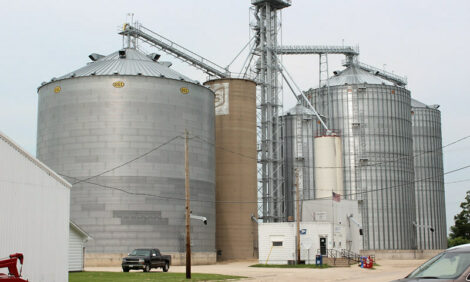



Chongqing's Wal-Marts to Close for 15 Days
CHINA - Most of Wal-Mart's Chongqing branches have been ordered to pay heavy fines and suspend their business for 15 days after being found to have sold ordinary pork as high-quality pork.According to administrative penalty regulations, 12 of the retail giant's 13 stores in the city must pay fines worth five times as much as the income they made from illegally selling ordinary pork under the guise of a more expensive type of meat that comes from pigs fed and raised in accordance with high standards. The outlets were found guilty of putting incorrect designations on 60 tons of the pork they had sold over the course of 20 months.
"By now, nine of the outlets have been fined nearly 2.7 million yuan ($430,000)," said Huang Bo, head of the Chongqing administration for industry and commerce, at a news conference on Sunday.
"This is the highest of all of the fines that have been imposed on supermarkets in recent years."
Of the 12 stores that are accused, seven have gone through legal procedures and began their 15-day suspensions on Sunday. They can only reopen if they pass an inspection by Chongqing's market watchdog.
Those seven stores were each suspected of using false advertising to sell more than 50,000 yuan worth of ordinary pork, an amount that made their violations serious enough to be deemed criminal.
Wal-Mart China put a statement on its official website on Sunday, saying a taskforce from the company's China headquarters has been dispatched to Chongqing to ensure the company's stores there follow strict inspection and management policies.
"We will take all necessary steps to ensure this does not recur," the notice stated. "Wal-Mart is committed to protecting the rights of consumers."
Since coming to the city in 2006, Wal-Mart has not remained unknown to regulatory authorities. Official statistics show that Chongqing's market watchdog has punished the company's outlets 21 times for selling expired and substandard food, as well as for using false advertising.
Several customers said stricter penalties should be imposed on businesses that make illegal profits.
"A 15-day suspension is more effective than imposing a fine, since it affects not only daily turnover but also consumers' trust," a man with the surname Feng said in front of a closed Wal-Mart outlet in Yubei district.
"The punishment this time will help deter potential law breakers."
Some said they have little confidence in retail businesses.
"Retail giants such as Wal-Mart have many flaws, not to speak of small, less well-known dealers," said Wang Chenshuang, a 24-year-old Chongqing resident. "The reason that others are not being investigated is only that their problems have not been found or reported."
Consumer rights experts said customers in a developing economy often have various attitudes about how markets should be supervised, but the public should not lose confidence.
"More up-to-date supervision techniques and stronger supervision, sophisticated laws and regulations and a non-discriminatory attitude toward foreign and domestic brands will bring us a better market environment, with more integrity," said Qiu Baochang, head of the China Consumers' Association's lawyer group.
Further Reading
|
| - | Go to our previous news item on this story by clicking here. |








